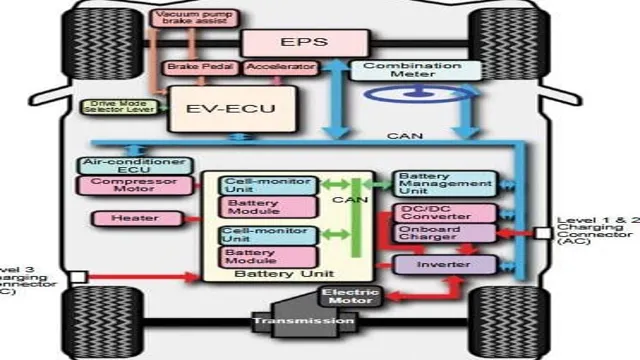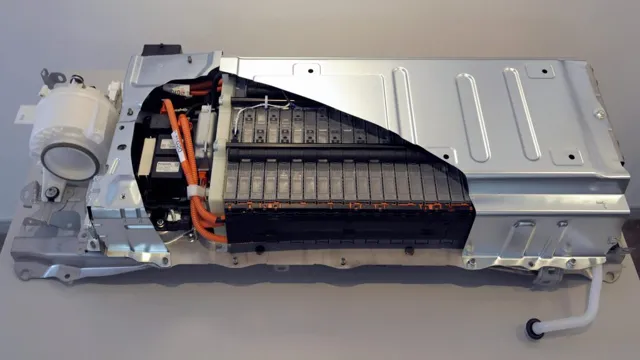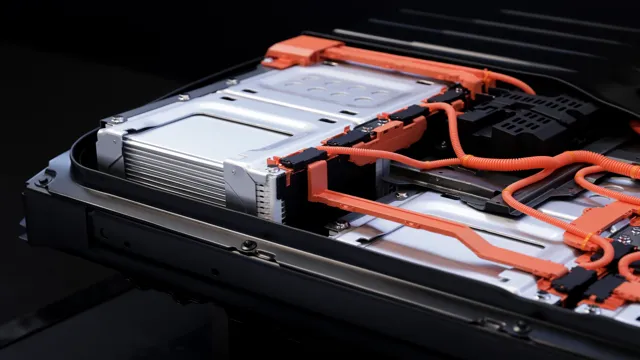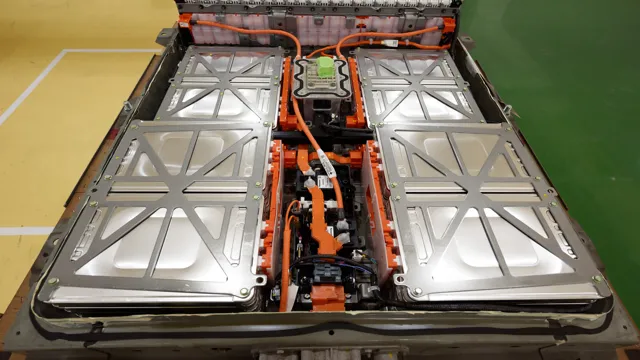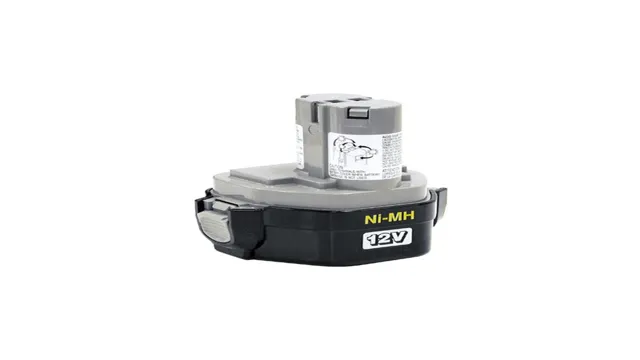Revolutionizing Your Ride: The Ultimate Guide to Electric Car Battery Management Systems
Driving an electric car is a fantastic way to minimize your carbon footprint while saving money on fuel costs. However, we all know that the biggest drawback of an EV is the limited range and the time it takes to charge. Fortunately, with a few simple techniques, you can maximize the range of your electric car and make the most out of your driving experience.
In this blog, we will explore the best strategies and tips for maximizing range and efficiency with your electric car.
Efficient battery management system
Electric cars are becoming more popular due to their efficiency and eco-friendliness. However, the battery management system is an essential aspect of an electric car since it manages the battery’s charge, temperature, and state of health. A well-designed battery management system can increase the battery’s lifespan, performance, and safety.
Electric vehicles rely on a high-performance battery management system to store and deliver energy efficiently, which maximizes the car’s range and extends battery life. The battery management system monitors and regulates voltage, temperature, and current levels, ensuring that the battery is always in optimal condition. It also manages the charging process to avoid overcharging or overheating, which can damage the battery.
In summary, an efficient battery management system is critical to maintaining electric cars’ performance, safety, and longevity, making it an essential aspect of the electric car design process.
Why a good battery management is crucial to your electric vehicle
Electric vehicle batteries are the cornerstone of the entire electric car experience. They power the vehicle, determine its range, and are a considerable investment for EV owners. That’s why having a good battery management system is so important.
Without proper management, a battery can quickly become inefficient and cause frequent breakdowns. Moreover, a poorly managed battery can cause preventable safety issues. An efficient battery management system monitors and maintains the health of the battery by evenly distributing energy, managing charging and discharging cycles, and offering performance analytics.
In other words, it provides a smooth experience for the driver and ensures that the battery lasts as long as possible. Having a good battery management system is not just critical to EV manufacturers, but also to EV owners who expect their cars to perform at their best. By using a top-rated battery management system, EV drivers can drive with peace of mind knowing their car’s battery is always performing optimally.
Benefits of a well-tuned battery management system
As battery technology continues to evolve, the importance of a well-tuned battery management system (BMS) cannot be overstated. An efficient BMS helps to maximize the lifespan of batteries, ensuring optimal performance and reducing the risk of battery failure. This not only saves money in the long run, but also improves safety for users.
A properly calibrated BMS ensures that batteries are not overcharged or discharged, preventing damage and extending their lifespan. In addition to this, a good BMS can also monitor the health of batteries and provide valuable feedback on performance, allowing users to make informed decisions about when to replace their batteries. Overall, investing in a well-tuned BMS is crucial for anyone who relies on batteries, as it helps to maintain optimal performance, reduces the risk of failure, and maximizes lifespan.
Battery charging and monitoring
Electric car battery management system is crucial for the performance, longevity and safety of an electric vehicle. The battery management system is responsible for charging and monitoring the battery cells, ensuring that each cell is operating within a safe range of temperature and voltage. It also provides data to the driver about the remaining range, charging requirements and battery health.
The charging system takes advantage of regenerative braking to recover energy and can be charged using different levels of charging stations, namely, Level 1, Level 2 and DC fast charging. The choice of charging station can have an impact on battery life, as fast charging can cause increased temperature and can lead to accelerated degradation of the battery. Therefore, it is recommended to use fast charging sparingly and prioritise Level 2 charging for daily charging needs.
By understanding the battery charging and monitoring system, electric vehicle owners can maximise the performance and lifespan of their batteries and have a hassle-free driving experience.
Charging options for electric cars
When it comes to electric cars, one of the most important factors is battery charging and monitoring. As an electric car owner, you want to make sure your car is always charged and ready to go. There are several charging options available, including Level 1 charging that uses a standard household outlet and Level 2 charging that requires a 240-volt charging station.
Additionally, some electric cars have the option for DC fast charging that can charge a car up to 80% in less than 30 minutes. It’s important to monitor your battery status regularly to ensure you aren’t caught with a dead battery. Many electric cars have built-in monitoring systems that display the battery level and estimated distance remaining.
Overall, understanding the various charging options and having a monitoring system in place is essential to maintaining the longevity of your electric car’s battery and keeping it charged and ready for your next adventure.
Monitoring battery performance
Battery charging and monitoring are essential to ensure that your device has the power it needs to run smoothly. Regular charging is the best way to keep your battery topped up, but it’s also important to monitor the performance of your battery to make sure it’s not deteriorating over time. You can use various tools and features on your device to monitor battery performance, such as the battery health tool that shows you how much battery life is left and how long it will last.
You can also adjust settings, such as screen brightness or app usage, to help conserve battery life and ensure it lasts as long as possible. By regularly monitoring and optimizing your battery performance, you can extend the life of your device and prevent unexpected shutdowns.
Charge optimization to extend battery life
When it comes to battery life, charging optimization can be the difference between a long-lasting battery and frequent replacements. Monitoring your battery’s charge levels is a crucial step in ensuring that it remains healthy and effective for as long as possible. Overcharging and undercharging can both lead to reduced battery life, so it’s important to find the sweet spot for your device.
Some tips for charging optimization include avoiding extreme temperatures during charging, charging more frequently but for shorter periods of time, and using a power strip with surge protection instead of directly plugging into an outlet. By being mindful of your battery’s charge and taking steps to optimize it, you can get the most out of your device and avoid the frustration of constantly replacing batteries.
Software solutions for battery management
Electric car battery management systems require the use of advanced software solutions to ensure optimal performance and safety. These software solutions help monitor the state of the battery, regulate charging and discharging processes, and predict battery health and lifespan. By collecting real-time data on the battery’s performance, the software can identify potential issues early on and allow electric vehicle owners to take corrective actions.
In addition, battery management software can provide alerts and notifications to drivers, helping them make informed decisions about their driving habits and reduce unnecessary wear and tear on the battery. With the increasing demand for electric vehicles, software solutions for battery management are essential for ensuring the longevity and efficiency of these vehicles and making them a viable alternative to traditional gas-powered cars.
How software plays a role in battery management
Battery management is a crucial aspect of modern-day technology and software plays a significant role in it. Software solutions for battery management help in regulating the battery’s performance, enhancing its lifespan and ensuring its safe and efficient use. Battery management software tracks the power consumption and charging of the battery while also monitoring the temperature and voltage levels of the battery.
Analyzing this data helps in optimizing the battery’s usage, enabling it to perform at its best without the risk of overheating or overcharging. Along with monitoring the battery’s performance, battery management software also provides alerts in case of any abnormality, allowing for prompt action to be taken. Such software is commonly used in smartphones, laptops and electric vehicles, where it is essential for the efficient and safe use of batteries.
With advancements in technology, battery management software will continue to evolve, ensuring an improved and more sustainable use of batteries in the future.
Popular software solutions for electric car battery management
Electric car batteries are a critical component of the electric vehicle (EV) ecosystem, and battery management software solutions are essential to ensure optimal battery life and performance. A popular software solution for electric car battery management is Tesla’s Battery Management System (BMS). This system continuously monitors and optimizes the battery’s state-of-charge, thermal management system, and cell balancing for maximum performance and longevity.
Another software solution gaining popularity is MAX BATTERY, developed by Green Motion, a leader in EV battery technology. MAX BATTERY has a user-friendly interface that allows drivers to monitor their battery’s health, performance, and range, while also offering predictive maintenance capabilities. Finally, Contour, developed by DNV GL, combines battery analytics, predictive modeling, and electrical grid integration to create a comprehensive battery management system.
Contour is particularly useful in large-scale commercial applications, enabling utilities and energy companies to manage EV charging and battery storage efficiently. These innovative software solutions are revolutionizing the EV industry and paving the way for more sustainable transportation options.
Conclusion
In conclusion, the electric car battery management system is like a personal trainer for your car’s battery. It monitors the battery’s health, ensures it’s getting enough exercise, and provides a tailored charging schedule to optimize its performance. Just like a personal trainer, the battery management system pushes the battery to its limits without over-exerting it, resulting in longer battery life and improved efficiency.
So, if you want your electric car to stay charged up and ready to go, make sure it has a trustworthy battery management system to keep it in shape!”
FAQs
What is an electric car battery management system?
An electric car battery management system is a system that controls and monitors the performance and health of an electric vehicle’s battery.
How does an electric car battery management system work?
An electric car battery management system works by monitoring the battery’s temperature, voltage, and current. It also optimizes the battery’s charging and discharging cycles to prolong its life.
Why is an electric car battery management system important?
An electric car battery management system is important because it helps ensure the battery remains healthy and operates efficiently. It also helps prevent overcharging or undercharging, which can reduce the battery’s lifespan.
Can an electric car battery management system be upgraded or replaced?
Yes, an electric car battery management system can be upgraded or replaced if needed to improve the battery’s performance or to repair any faults in the system. However, this should only be done by a qualified technician.
